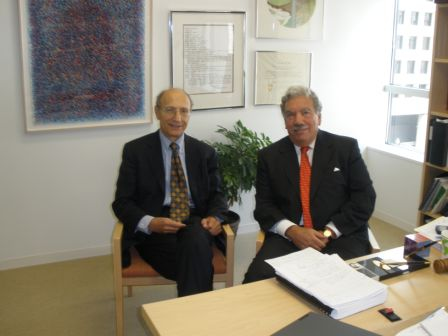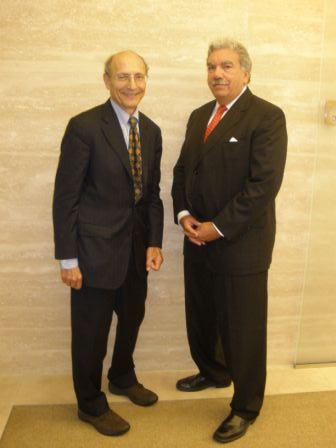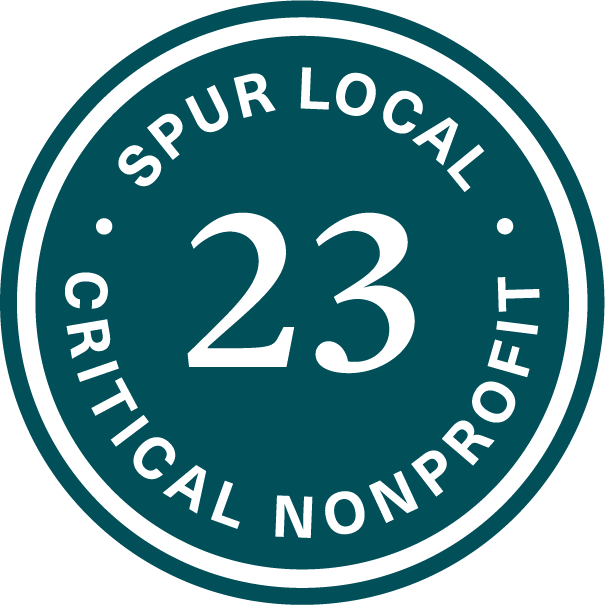An Interview With President Earl J. Silbert

By Cary M. Feldman, Esq.
This interview was first published in CCE’s Court Excellence newsletter in summer 2009
Cary Feldman: Let’s start with a little history. I think I recall that you were around and involved in the court reorganization that took place in the early 70s, that moved a lot of the jurisdiction for civil and criminal justice from the United States Circuit and District Courts to the District of Columbia Court of Appeals and Superior Court. Can you briefly recount what was done, why, and what role you played in that process?
EarlSilbert: In 1969-1970, a task force was created in the Department of Justice under the leadership of Don Santarelli, a former Assistant U.S. Attorney who was then an Associate Deputy Attorney General. I was a member of that task force. At the time, the amount of crime in the District of Columbia had arisen at an enormous rate primarily due, as best we could determine, to a heroin epidemic. The District Court was having trouble handling the increase in the number of arrests and indictments. As a result, the task force concluded that restructuring and reorganizing the jurisdiction of the federal courts here in the District would make sense, and that is what led to the creation of the Superior Court, a court that was designed to have full criminal and civil jurisdiction, to be a court of general jurisdiction with a nine judge Court of Appeals.
There have been so many highlights to your legal career which has included public service, private practice, service to the Bar, and to the courts. Is there anything in particular that you drew upon from that wonderful career in deciding to accept the nomination to become President of the Council for Court Excellence, or is it more the sum total of what you have done and where you are in your career today?
It is some of both, Cary. I have had the privilege of providing extensive service to the District of Columbia and its courts. I served as an Assistant U.S. Attorney and then United States Attorney. In response to your prior question, I mentioned that I was a member of the task force that worked on the reorganization of the courts in the District of Columbia. So I have had a long-standing relationship and commitment to the administration of justice in the District and that is really what persuaded me that I should continue, as best I can, to make a contribution to improvements and changes in the administration of justice in the Nation's Capital.
What issues would you like to see the Council focus on, or weigh in on, while you are active as President?
I have had the benefit of some briefings from members of the Executive Committee and those involved with the standing committees of the Council on issues and projects on which the Council is presently working. There are some significant issues that I fully support. One, for example, is trying to come up with procedures and processes for reentry into the community of prisoners who have served their sentences outside of the District of Columbia. CCE is studying the problem, and wants to determine how people can obtain meaningful jobs and places to stay when they return. Another project is a publication of a handbook that will provide local and visiting journalists with an understanding of our courts with the goal to improve accuracy in their reporting. These are worthwhile projects and I support them, and as time goes on, others will arise.
From the privilege and opportunity I have had to work with those involved in the administration of justice in the District of Columbia, and more particularly the courts, it is my view that we are fortunate to have outstanding courts and judges. But there always are new challenges that arise. There is room for improvements and the Council is uniquely suited to respond.
One of the unique aspects, or the so-called “secret sauce” of the Council, is its composition: legal community, business community, judicial community, government community, private citizens, etc. Now, I know you know a lot of people, and a lot of people know and respect you. Have you thought about how you can tap into that huge network of personal and professional friends and acquaintances to enhance and enrich the work of the Council?
I agree that one of the strengths of the Council is its composition consisting of various communities within the District of Columbia. For example, the [former] Chair of the Council, Marie Johns, has a long and productive history and experience as a leading member of the business community; she has special ties there and can draw upon those. Similarly, I have had the benefit and good fortune to have had extensive contact with the legal community here and the judges on the Superior Court, District Court and Courts of Appeals. I would hope that as issues and questions arise, the Council for Court Excellence will continue to work closely with the courts, and legislative and executive bodies to provide the benefit of its knowledge and experience.
These obviously are challenging times for non-profits, and that would include civic organizations such as the Council that are so dependent upon voluntary donations and grants. Any thoughts on how the Council will generate resources needed to allow it to continue to pursue its mission?
These are very difficult times for non-profit organizations and the Council is not exempt from these stresses. It is continuing its efforts to expand its membership and is submitting various grant proposals. We are hopeful that the Council, because of its unique position in DC, will be a worthy recipient of the funding needed to fulfill its mission.
What are your impressions so far of the Council’s Board of Directors, its Executive Committee and its Staff?
As to the Board, I think it offers a unique opportunity to involve members of our legal, business and other communities with the administration of justice in the District of Columbia in a productive manner. Hopefully we will continue to expand the Board so as to increase its ability to serve. The Executive Committee is a group of dedicated members of these various communities who are really rolling up their sleeves to participate in the governance of the organization and its various projects. The staff, as small as it is, is dedicated, capable and knowledgeable. So I am very excited about the opportunity to work with all three of these groups.
Thank you Earl.

* Cary Feldman has been a partner at the firm Feldesman Tucker Leifer Fidell LLP since 2002 and practices in the areas of white collar criminal enforcement and commercial litigation. He is a former Assistant U.S. Attorney for the District of Columbia and the former Deputy Independent Counsel for the Bruce Babbitt investigation. Messrs. Feldman and Silbert practiced together for many years, originally in the U.S. Attorney's Office and subsequently at Schwalb Donnenfeld Bray & Silbert P.C. and Piper Rudnick LLP (now DLA Piper). Mr. Feldman has been on the Board of Directors of the Council for Court Excellence since 1995 and served as chair of CCE's Criminal Justice Committee from 1996 to 1998.


